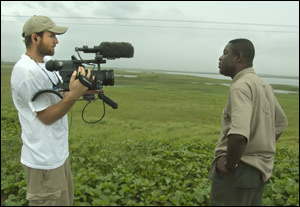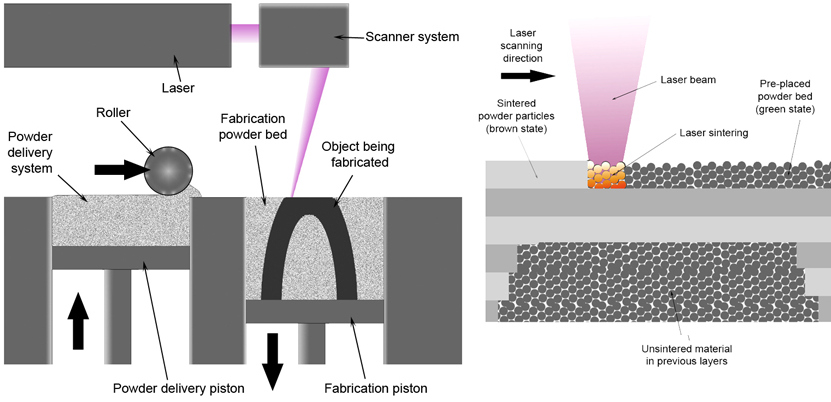In March of 2020, five years after Fair Trade Recycling toured Ghana, a thriving refurbishing, assembly, and recycling operation exists. Chendiba Recycling Enterprises, headquartered in Tamale, has hired most of the Ghana scrap workers who previously hung about Agbogbloshie looking for copper on a barren and charred landscape. The recyclers have uniforms, appropriate tools, and safety training. They offer tours of the recycling operation to Western university students, reporters, regulators and photographers. Visitors are housed in a new affordable housing complex, erected where the slum was bulldozed in 2015. This “urban eco-tourism” has created opportunities for economic migrants in Accra, and also at similar “recycling parks” in Tamale and Kumasi.
Transforming attitudes, not Africans
The recycling staff are overseen by Technicians of Chendiba Enterprises, a computer, cell phone and television "R and O" (Repair and Overhaul) operation. Chendiba was nearly shut down by misdirected environmental enforcement in 2015. Happily, Africa’s “Tech Sector” workers are now recognized as the best and brightest of Ghana’s economy.
“We would no more boycott the Techs of Agbogbloshie than we would a manufacturer takeback program,” said a spokesperson for an environmental NGO, who is taking university surplus property officials on a tour of the grounds. Referring to the past decade of boycotts as “collateral damage” and “friendly fire”, the NGO leader now promotes a “Hurricane Joe Benson” scholarship to bring students from around the world to see “win-win” in action. "The Tinkerer's Blessing" is seen as the best, most sustainable economy in emerging markets - the opposite of the Resource Curse. Africa's geeks add value to e-scrap with their minds, and use the profits to clean up Africa's own recycling yards.
Environmentally and Economically Sustainable
The program is funded not only by the environmental tourism, but by the very import-for-reuse economy once targeted by anti-globalization NGOs. Chendiba is now the leading importer of, and recycler of, flat screen LED and LCD televisions worldwide, and employs hundreds. “While the major cause of waste generation in Europe and the USA is physical screen damage, Africa’s flat TVs most often suffer from blown boards due to ‘fuzzy current’,” explains Muhammed Odoi. “We import and part out the TVs and use them to provide affordable parts in Ghana.”
The Fair Trade Recycling program does not need European customs agents or Interpol staff to interfere with Chendiba’s imports. It encourages the import and export as a "value added, job creating industry". Asked whether the parts are “properly tested” in America, African regulators now shrug. They explain this recycling system is based on “carbon trading” models. “For every ton of electronics we import to Ghana,” explains Muhammed, “we collect and recycle two tons of old electronics from Ghana’s cities.”
Opportunity vs. Embargo
The Fair Trade Recycling program has been much easier to monitor and enforce than "PAT tests" (which never accurately predicted African consumer demand or shelf life) or traditional "certification" programs. The Chendiba traders order and buy what they want. Chendiba must simply show it recovers and properly recycles at least as many pieces of "ewaste" from Africa's cities as it imports. VCRs, CRT televisions, Pentium 1 computers, etc. were imported in the 1980s and 90s, used productively for years, but now need a recycling solution; Chendiba is there.
As more countries allow export under Fair Trade, the quality of imports has improved. “We no longer have to choose between buying in back alleys and staying barefoot and off the internet,” says Kamal. "We benefit from more choice of suppliers, lower prices, legally enforceable contracts, openness, and transparency. It is a "computers for clunkers", or needle exchange, or carbon trading model. We recycle as much as we import, period."
Marketplace Solution vs. Enforcement
The 2020 “ewaste trading” project has been far more successful than western certification programs. It is less paternalistic, more transparent. It involves less liability for sellers, and frees up valuable Interpol time to pursue endangered species poachers, rather than "geeks-of-color". This circular economy interferes less with the “good enough market” African consumers depend on. The main question, students here ask, is "why did it take so long to accept a solution so simple?"
Just as it is more efficient for an airline to pay for carbon removal by planting trees than to squeeze more carbon from jet fuel combustion, it's easier for Africa's Tech Sector to recycle the urban e-waste than to "certify" every piece they import. Fair Trade Recycling assures that even if an item is damaged in shipping, that a recycling infrastructure is in place to manage it, and that another piece of junk was properly recycled in exchange. The program brings Ghana’s poorest scrappers and drop-outs from the slums, and surrounds them not with Western “saviors”, but with the Africa’s high-tech entrepreneurs, Africa’s valedictorians.
Legal, Safe, and Necessary
American and European recyclers now get to meet the technicians overseas who were once impugned as shady characters, and pay less tax money to prosecute them. They see that Africa is not a jungle, not a dystopia. They see that African techs, African consumers, and African recyclers are no more “primitive” than Americans, Europeans, Asians and Latinos. They need affordable technology, and then have decades of older machines to recycle.
“Most Africans live in the Africa the media never showed you,” says Wahab. “Fair Trade Recycling sees Africa for what it can do and must do, not for what we cannot do.”
"We are transforming attitudes rather than Africans."












